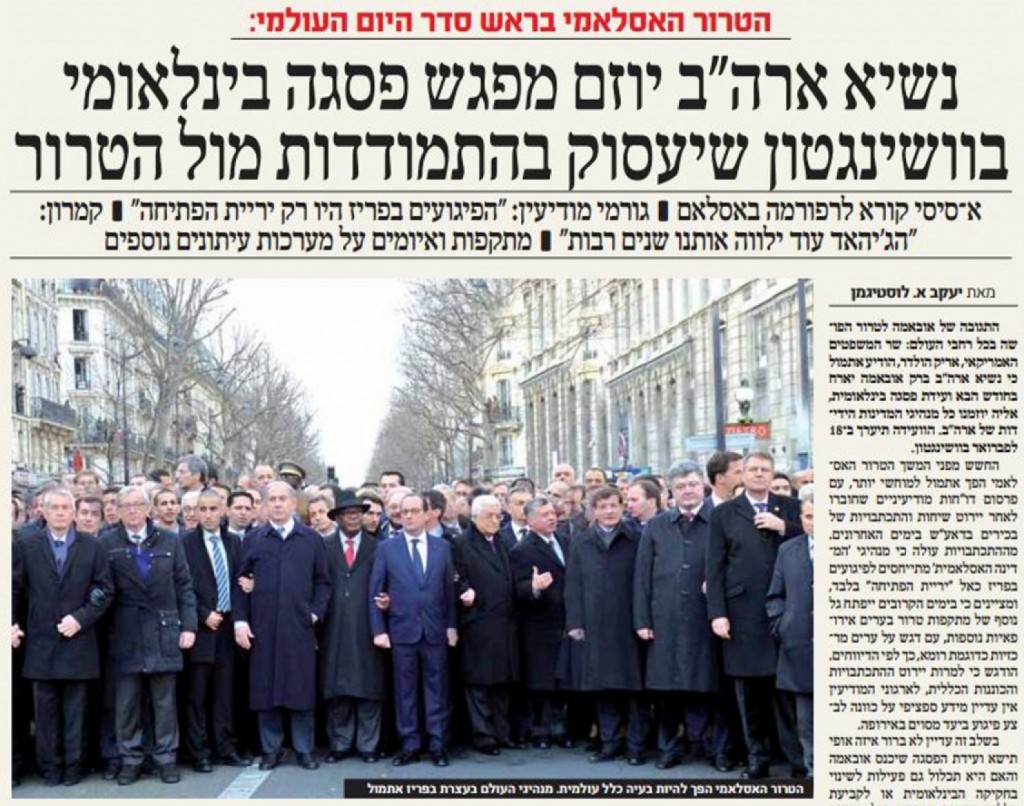
World leaders marched in solidarity in Paris last week against terrorism, alongside more than a million people. There were a number of powerful women in the scene and an Israli newspaper, HaMevaser digitally removed them all. This included Angela Merkel, the Chancellor of Germany, European Union security and foreign affairs chief Frederica Mogherini and Paris Mayor Anne Hidalgo.
Ultra-Orthodox Jews traditionally don’t prefer to show images of women because it’s not considered modest. Political parties that represent the ultra-Orthodox sector actually ban women from running for office.
There is a strong segment on social media and famous writers that think that the digital removal of women from such an iconic photo is going too far.
Allison Kaplan Sommer said “the message HaMevaser sent was tantamount to denying the fact that in the wider world, beyond the ultra-Orthodox Jewish community, women do stand on the world stage and shape events.”
Yossie Bloch said “Ultra-Orthodox media are so overwhelmed by the raw sexuality of Angela Merkel in a full-length coat they photoshopped her out.”
The Telegraph condemned the sexist editing and pointed out the irony that a ‘unity’ rally aimed at spreading a message of peace has been tampered with.
Meanwhile, a satirical Irish publication, Waterford Whispers, had a little fun with the story and published the photo from the Paris march showing only the three women and cutting out all the men.

I think this entire situation sets a dangerous precedent when newspapers can augment important photos in order to not offend their readership. HaMevase does not have much of a digital presence in the digital space, such as apps for Android, iOS or distributed in replica form via Pressreader. But what about the ones that do? At what point do we have to cross reference photographs that are attached to the mainstream media stories that come out? When photos exist in the digital format, they last forever. When our daughters begin to do research reports and notice an absence of their peers, what are they going to think about their own prospects of the future?
Michael Kozlowski is the editor-in-chief at Good e-Reader and has written about audiobooks and e-readers for the past fifteen years. Newspapers and websites such as the CBC, CNET, Engadget, Huffington Post and the New York Times have picked up his articles. He Lives in Vancouver, British Columbia, Canada.